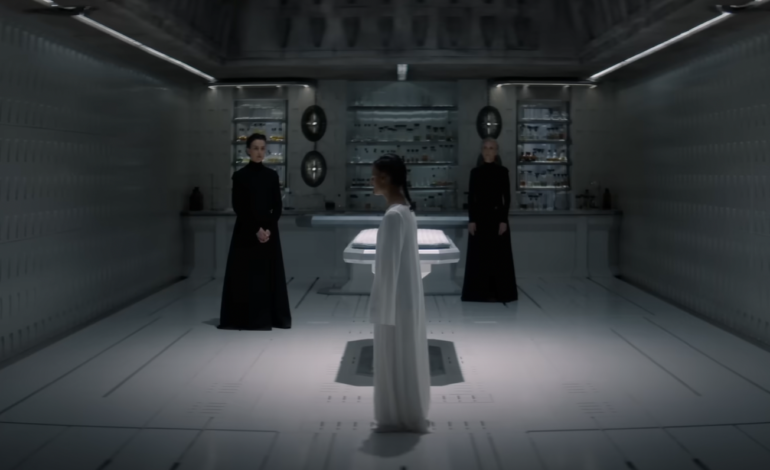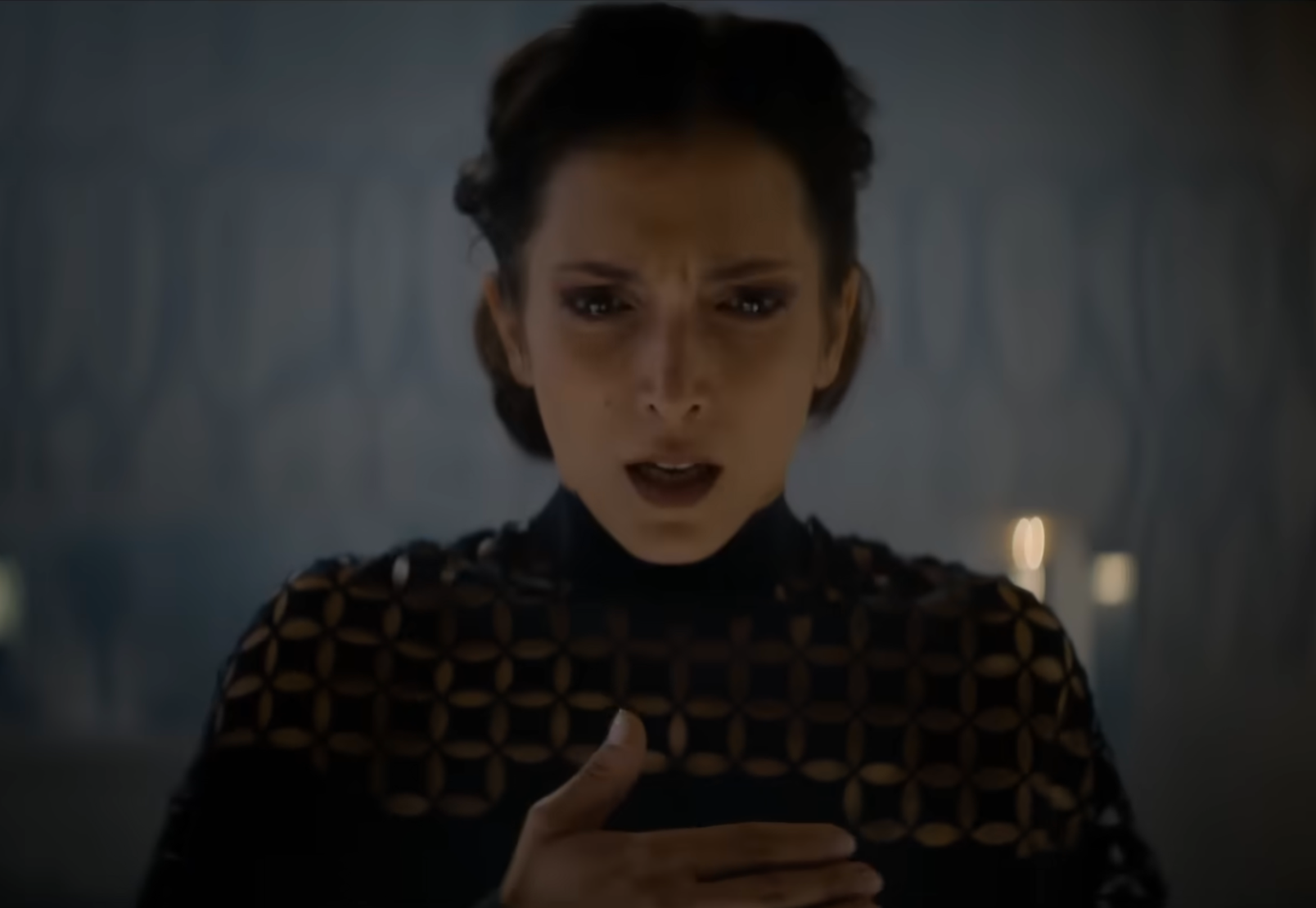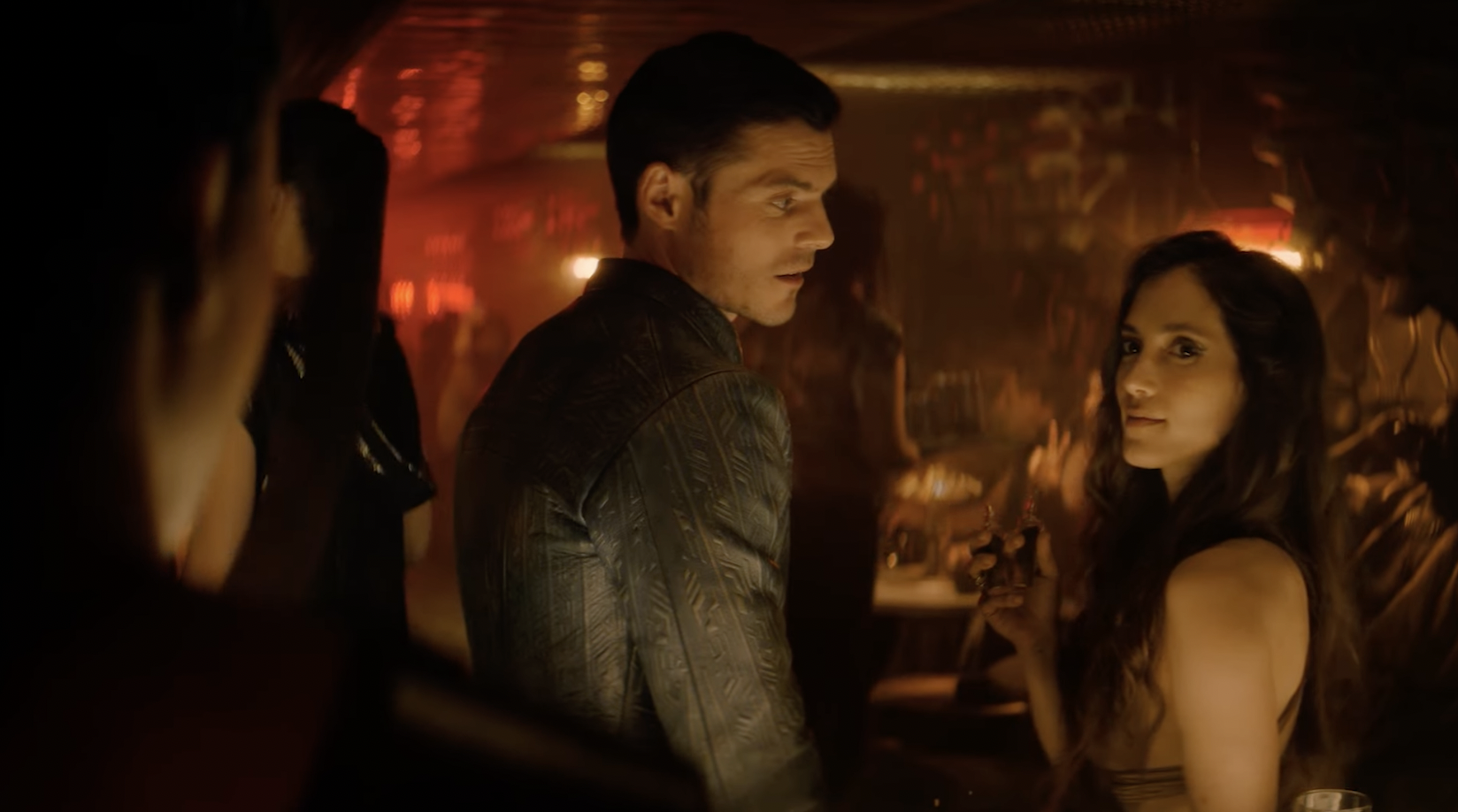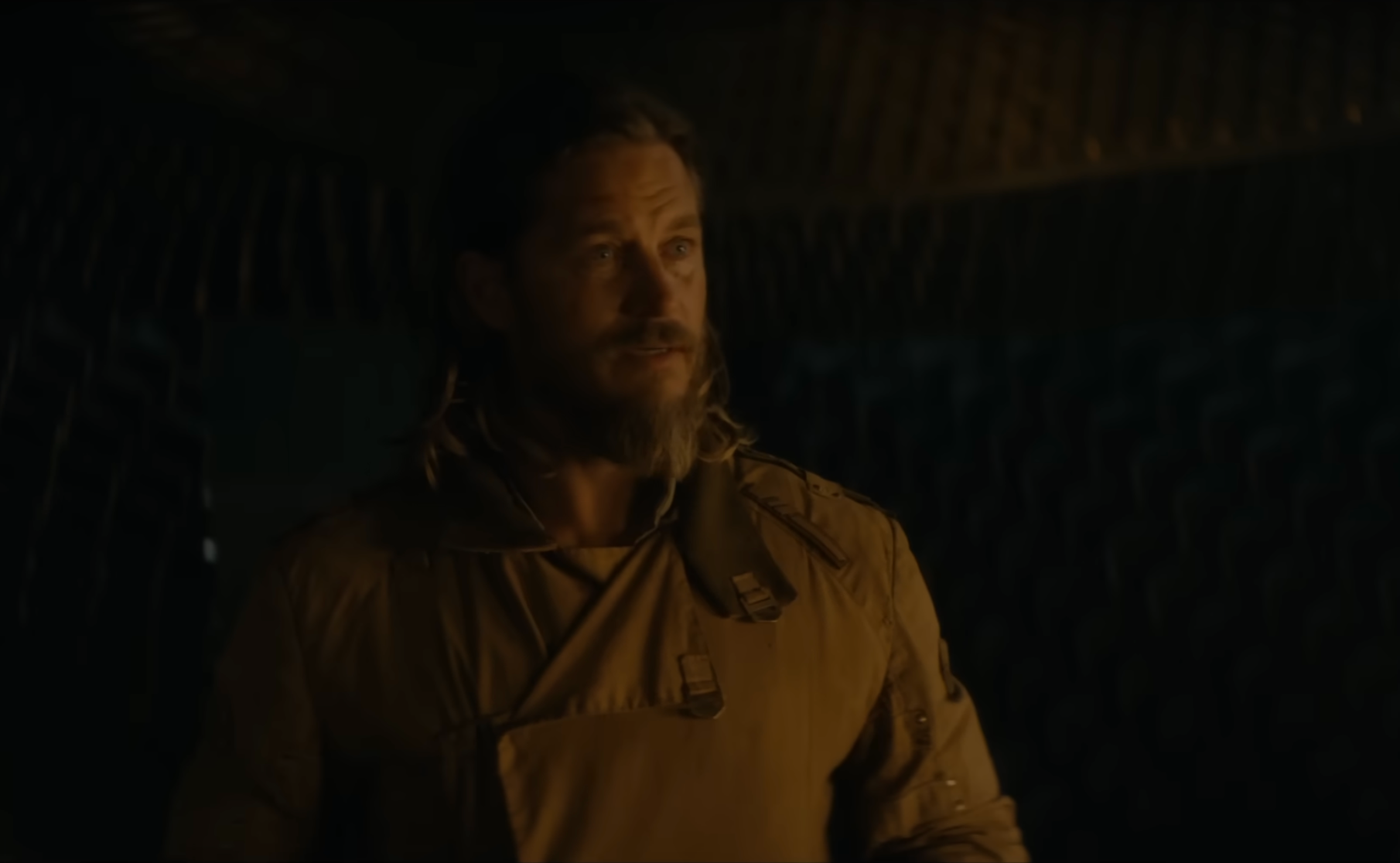

Season 1, Episode 2, titled “Two Wolves,” directed by John Cameron and written by Elizabeth Padden and Kor Adana, continues the Max series Dune: Prophecy. The episode delves into the aftermath of the deaths of Reverend Mother Kasha and Lord Pruwet Richese, both pivotal figures in the Bene Gesserit’s genetic breeding program and their influence over the Imperium. The repercussions of these events ripple across the Sisterhood and House Corrino, creating significant challenges for both. At the center of this turmoil is Desmond Hart, whose value and threat are carefully assessed by the Sisterhood, under the leadership of Valya Harkonnen, and by the Royal Family, led by the Emperor.


Ynez Mourns Kasha’s Death
The theme of the episode centers on vulnerability. The death of Reverend Mother Kasha delivers a significant blow to the Bene Gesserit, particularly to Valya Harkonnen (Emily Watson), as Kasha was a trusted member of her inner circle. Kasha also served as a key advisor to Emperor Javicco Corrino (Mark Strong) and played a vital role in arranging the marriage between Princess Ynez (Sarah-Sofie Boussnina) of House Corrino and Pruwet Richese of House Richese. However, this union collapses in tragedy when Desmond Hart (Travis Fimmel) murders both Kasha and Pruwet via immolation using mysterious psychic powers. In the wake of this disaster, Valya and her sister Tula Harkonnen grow increasingly desperate to regain their influence over House Corrino and eliminate the growing threat to their grand plan of ruling the Imperium from the shadows.
The concept of vulnerability is further explored through House Corrino. Emperor Javicco finds himself gripped by fear as he contemplates the political fallout of failing to protect Pruwet, an act that has earned the ire of House Richese—a formidable house renowned for its powerful fleet and superior manufacturing capabilities. This situation exposes Javicco’s weakness as a leader. Much like Viserys Targaryen from House of the Dragon, he is a ruler who seeks to please everyone in the Landsraad. However, as the episode suggests, effective leadership requires more than kindness; it demands a delicate balance of guile, compassion, and ruthlessness. A ruler must embody the slyness of a fox, the gentleness of a sheep, and the ferocity of a wolf, all guided by the singular virtue of wisdom.
Princess Ynez, the crucial link between the Bene Gesserit and House Corrino, mourns Kasha’s death. Unlike the distant Empress, Kasha acted as a surrogate mother to Ynez, though this bond may have been a calculated move by the Sisterhood to ensure Ynez’s upbringing aligned with their goals. With the princess of the Imperium potentially becoming a member of the Bene Gesserit, the Sisterhood stands to strengthen its influence over the royal family and, by extension, expand its reach into other Great Houses.
Kasha’s death galvanizes Ynez’s determination to join the Bene Gesserit, not just to honor her mentor but to gain the power to escape her parents’ political manipulations. However, the episode hints at a darker transformation ahead: in her quest for strength and independence, Ynez risks losing her humanity. Introduced as a typical, empathetic princess, she may ultimately evolve into a cold-hearted zealot, sacrificing her morality and warmth to fulfill the Sisterhood’s agenda.
This transformation could have far-reaching consequences, especially for Keiran Atreides (Chris Mason), Ynez’s lover. Keiran’s potential blame for Ynez’s corruption could further ignite the deepening rivalry between House Atreides and House Harkonnen, adding another layer to the enduring feud between the two houses. As the pieces on the chessboard shift, this episode sets the stage for political intrigue, personal tragedy, and the relentless pursuit of power within the Imperium.


Too human for Dune?
There have been many criticisms of the pilot episode, particularly regarding the excessive “human elements” in the show. Examples include the character dialogues feeling too casual and grounded, and the now-infamous bar scene where Princess Ynez and her lover, Keiran Atreides, share a moment. Fans and viewers have expressed disappointment at the lack of mysticism, a defining element of Denis Villeneuve’s Dune films.
It is important to note, however, that the era Paul Atreides grew up in was indeed a far more mystical and dark time. This was a period when the Bene Gesserit had reached the peak of their power, firmly controlling the Imperium and its noble houses through their advanced genetic breeding programs and intricate political manipulations. The events depicted in Dune: Prophecy occurred 10,148 years before these events—a staggering timespan. For context, even the Roman Empire, with its 1,480-year history of rise and fall, pales in comparison to such a number. At this point in the timeline, the Bene Gesserit are barely a century old, and their genetic breeding programs are still in their infancy.
Given this, it is reasonable for the characters and society in Dune: Prophecy to appear more “human” than their distant successors. These are people still untouched by the advanced genetic manipulations that will later dominate the Imperium under the Bene Gesserit’s influence. Similarly, the Bene Gesserit themselves are depicted as being in their early stages. Valya Harkonnen and her peers represent the first generation of the Sisterhood, still retaining aspects of their humanity. This is in stark contrast to the cold, detached nature of their successors, who sacrifice their humanity to achieve the long-term agenda of creating the Kwisatz Haderach—a powerful, psychic leader capable of uniting and controlling the Imperium.
The more grounded and human portrayal in Dune: Prophecy reflects the formative stage of this universe. The lack of mysticism is not an oversight but rather a narrative choice that aligns with the era depicted. As the series progresses, it may show the gradual transformation of the Sisterhood and society into the mystical, enigmatic forces seen in later Dune stories.


Desmond Hart = Dune’s Odin???
There are notable Norse references connected to Desmond Hart in Episode 2, particularly when he declares that Shai-Hulud took his eye and granted him a powerful gift to see what the Bene Gesserit cannot. The irony is clear, given that Travis Fimmel, who plays Desmond Hart, is best known for portraying Ragnar Lothbrok, a Norse Viking who worshiped gods like Odin. This connection deepens when considering that Hart’s power may be tied to the Water of Life, a substance derived from the blood of Shai-Hulud. This same power significantly enhanced Paul Atreides’ abilities in Dune: Part Two.
Desmond Hart’s unwavering loyalty to the Imperium further adds to his mystique. Unlike the vassals of House Corrino, who typically offer loyalty in exchange for personal gain, Hart’s dedication appears unconditional. This fascinates both Emperor Javicco Corrino (Mark Strong) and Empress Natalya (Jodhi May), as his selflessness is a rarity in the political machinations of the Imperium. However, Hart’s bias against the Bene Gesserit makes him a significant threat to Valya Harkonnen. Before eliminating this threat, Valya must first uncover the source of Hart’s mysterious power—power potent enough to kill both Pruwet Richese and Reverend Mother Kasha through immolation.
Hart’s vendetta against the Bene Gesserit is not without reason. He harbors a deep resentment born from the loss of his comrades and friends, casualties of the Bene Gesserit’s manipulative schemes on Arrakis—just one of many plots to gain control of the Imperium from the shadows. In his mind, Hart views himself as the savior of the Imperium, determined to protect it from the Bene Gesserit’s influence.
However, it should be remembered that the Bene Gesserit’s endurance far surpasses any single individual’s lifetime. Despite Hart’s noble—or perhaps vengeful—intentions, he is destined to fail, leaving the Sisterhood a lasting force in the Imperium for the next 10,148 years.
Rating: 9/10
